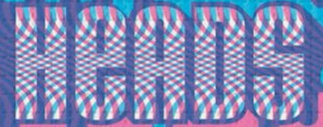impro
Keith Johnstone’s Impro: Improvisation and the Theatre was unofficially required reading for a group of friends near the end of college. Though nominally about, well, improvisation and theater, Johnstone’s very British writing about human interaction is lucid and fantastic. His work on status, especially, is a useful way to think about any relationship, be it between people, objects, or some combination thereof.
1. from ‘A psychotic girl’
We were in a beautiful garden (where the teenager had just seen God) and the teacher picked a flower and said: ‘Look at the pretty flower, Betty.’
Betty, filled with spiritual radiance, said, ‘All the flowers are beautiful.’
Betty rolled on the ground screaming, and it took a while to calm her. Nobody seemed to notice that she was screaming ‘Can’t you see? Can’t you see!’
In the gentlest possible way, this teacher had been very violent. She was insisting on categorising, and on selecting. Actually it is crazy to insist that one flower is especially beautiful in a whole garden of flowers, but the teacher is allowed to do this, and is not perceived by sane people as violent. Grown-ups are expected to distort the perceptions of a child in this way.
2. from ‘Status’
‘Try to get your status just a little above or below your partner’s,’ I said, and I insisted that the gap should be minimal. The actors seemed to know exactly what I meant and the work was transformed. The scenes became ‘authentic,’ and actors seemed marvelously observant. Suddenly we understood that every inflection and movement implies a status, and that no action is due to chance, or really ‘motiveless.’ It was hysterically funny, but at the same time very alarming. All our secret manoeuvrings were exposed. If someone asked a question we didn’t both to answer it, we concentrated on why it had been asked. No one could make an ‘innocuous’ remark without everyone instantly grasping what lay behind it. Normally, we are ‘forbidden’ to see status transactions except when there’s a conflict. In reality, status transactions continue all the time. In the park we’ll notice the ducks squabbling, but not how carefully they keep their distances when they are not.


0 Comments